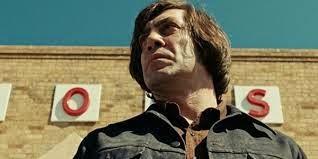History of Paramount Pictures
 Paramount Pictures Corporation owned by media conglomerate Viacom was founded in the year 1912. The founder Adolph Zukor of Famous Players Film Company decided to make feature films that would fulfill the demands of immigrants. By the mid of next year he made five successful films. In the same year Jesse L. Lasky founded Lasky Feature Play Company and hired Cecil B. DeMille for his first movie "The Squaw Man". Both these production companies sought help of Paramount Pictures to release their movies. Paramount Pictures was a new company at that time and was a merger of many small firms by W. W. Hokinson. The idea was appreciated and the new company, Famous Players-Lasky, got a good start.
Paramount Pictures Corporation owned by media conglomerate Viacom was founded in the year 1912. The founder Adolph Zukor of Famous Players Film Company decided to make feature films that would fulfill the demands of immigrants. By the mid of next year he made five successful films. In the same year Jesse L. Lasky founded Lasky Feature Play Company and hired Cecil B. DeMille for his first movie "The Squaw Man". Both these production companies sought help of Paramount Pictures to release their movies. Paramount Pictures was a new company at that time and was a merger of many small firms by W. W. Hokinson. The idea was appreciated and the new company, Famous Players-Lasky, got a good start.Zukor made the first slogan of the company "Famous Players in Famous Plays". He was the man behind successful actors like Douglas Fairbanks, Rudolph Valentino, Mary Pickford, Wallace Reid and Gloria Swanson. Paramount Pictures were the first to introduce the concept of block booking; this meant that if a particular firm wanted to buy the rights of a particular actor, they were also required to buy the other productions of Paramount Productions for that year. This concept proved to be a huge success and boosted the company's sale.
 Under the leadership of Zukor, Paramount had huge success. He was responsible for building number of theaters which had nearly two thousand screens altogether. He also had big investments in radio and in 1926 he gained control over the Balaban & Katz chain. Barney Balaban became the president and Sam Katz handled the Paramount Publix theater chain. The company's name, Famous Players-Lasky was changed to Paramount-Publix Corporation, in 1927. Due to the success of Publix theater chain the name was changed to Paramount-Publix Corporation in 1930.
Under the leadership of Zukor, Paramount had huge success. He was responsible for building number of theaters which had nearly two thousand screens altogether. He also had big investments in radio and in 1926 he gained control over the Balaban & Katz chain. Barney Balaban became the president and Sam Katz handled the Paramount Publix theater chain. The company's name, Famous Players-Lasky was changed to Paramount-Publix Corporation, in 1927. Due to the success of Publix theater chain the name was changed to Paramount-Publix Corporation in 1930. By 1932 Zukon left all his old partners behind as the company was facing bankruptcy due to the enormous expansion projects. A bank reorganization team, consisting of Otto Kahn and John Hertz took over the company but kept Zukon in the company. After dealing with bankruptcy, the company was named Paramount Pictures, Inc. and Barney Balaban became the chairman. Many actors and singers were roped in and on a yearly basis; the company was producing nearly seventy movies a year. They also tried their hand at cartoon and the two characters, Popeye the Sailor and Betty Boop became an instant hit.
The government was having problems with the block booking, so the company decided to end it in 1940, after which the company's production went down to twenty movies a year. While the company was making an effort to attract audience during the World War II, the Federal Trade Commission and the Justice Department reopened the case, U.S. vs. Paramount Pictures and the Supreme Court ordered the split of the company into two. Due to the loss of theater chains, the position of Paramount Pictures was very unstable and the company was sold to Gulf and Western Industries.
 Paramount collaborated with Universal Studios to form Cinema International Corporation in 1970. They began producing for television. After the realease of movies "Grease" and "Saturday Night Fever", the interest in movies were back again. Paramount Pictures began making albums when they purchased rights for Paramount Records. Cinema International Corporation became United International Pictures, in 1981, which was renamed as Paramount Communications in 1989. Paramount became a prominent name in Hollywood once again and gave tough competition to its rivals. Some survived by moving to another place like Warner Bros. and some closed down like for instance RKO.
Paramount collaborated with Universal Studios to form Cinema International Corporation in 1970. They began producing for television. After the realease of movies "Grease" and "Saturday Night Fever", the interest in movies were back again. Paramount Pictures began making albums when they purchased rights for Paramount Records. Cinema International Corporation became United International Pictures, in 1981, which was renamed as Paramount Communications in 1989. Paramount became a prominent name in Hollywood once again and gave tough competition to its rivals. Some survived by moving to another place like Warner Bros. and some closed down like for instance RKO.













0 comments: